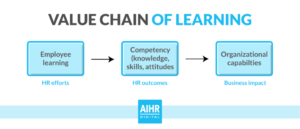FOOD BRANDING AND SAFETY
Those in the food service industry are obligated to guarantee their items are safe, properly packaged, and fresh for consumers. With changing customer demands and burdensome health regulations, it’s easy for those in the food industry to feel overwhelmed. Whether it is a small diner, farmer’s market, or a large restaurant chain, everyone knows that selling delicious, safe, and fresh food is essential to building a brand and maintaining a profit.
In this blog, Pritish Kumar Halder discusses Food Safety.

FOOD SAFETY
IMPLEMENTATION OF SECURITY STANDARDS
Implementing food-management protocols to comply with state/federal regulations is a crucial part of owning a grocery store or restaurant. Read ahead to learn the importance of utilizing an effective service management system to meet food safety standards.
Food inspectors
Food inspectors have a variety of responsibilities and objectives to meet. They have to ensure preparation areas meet cleanliness standards, that food is stored at the correct temperature, and free from possible contamination as it awaits being shipped to consumers.
Food hygiene for consumer’s health
Because of this important responsibility, food inspectors need to make sure preparation spaces are sanitized and contamination-free, as well as ensure that all packaged items are stored properly at the appropriate temperatures throughout transport. Software solutions have provided a way for operators to streamline and automate these tasks throughout the supply chain.
Grocery chain and quality
Food management also includes making certain items that are not sold to grocery chains past their shelf life. Some manufacturers of items inspect local grocery stores to guarantee that older items are not accidentally left on the shelves for consumers to purchase. These practices not only help meet guidelines, they make certain customers are receiving the safest and highest quality of food to eat.
What is Food Management?
Food management is an extensive process that encompasses a formal review of food selection, preparation, display, and preservation. Its purpose is to ensure that all food sold to commercial restaurants or businesses meet regulations set by the state and/or federal government.
Why is a Food Safety Management System Important?
Traditionally, managing food safety required a lot of paperwork, spreadsheets, and organization. As more restaurants and groceries became chains, their food data expanded and became more difficult to manage.
UTILIZATION AND SAFETY
Utilizing an effective food safety management system can help manage food safety procedures and mitigate any problems that may arise. Business can finally get rid of excel sheets and handwritten notes by using an intuitive system that ensures standards are met and rules are followed.
DATA AND FUNCTIONALITY
Most systems’ functionality automatically updates if a new regulation passes or there is a change in a local health guideline. Quality food safety software also enables the data collection from the main supplier management systems.

FOOD SAFETY MANAGEMENT SYSTEM
The Ultimate Benefits of Food Management
An optimized food management system allows operators to streamline inventory management, logistics, and prevent food safety problems. Here are the ultimate benefits of food management systems.
RULES AND REGULATIONS
Over time, the food service industry has faced new challenges. COVID-19 increased regulations, and globalization has forced food operators to adapt in ways they never had to. Navigating the complexities of food management requires expertise and extensive training in safety practices and quality control.
HOW IS FOOD MANAGEMENT HELPFUL?
The primary goal of food management is to ensure that every item sold to restaurants, grocers, and businesses is of high-quality and meets safety standards.
Because of this important responsibility, food inspectors need to make sure preparation spaces are sanitized and contamination-free, as well as ensure that all packaged items are stored properly at the appropriate temperatures throughout transport.
The top benefits of utilizing a food management system include-
- Navigate Complex Rules
Violating food safety regulations is no longer a minor offense. Processors need to comply with complex regulations to stay open and avoid penalties, including the FSMA, or the Food Safety Modernization Act.
- Monitor Food Data to Mitigate Risk
Monitoring food temperatures, packaging, and humidity levels are essential requirements in food management. Operators need to comply with regulations, maintain customers, and prevent contamination by ensuring food is stored properly at the right temperature during transport.
- Streamline the Food Management Process
Because software solutions can integrate with mobile devices, managers can monitor their food data from any location. Authorized individuals can update inventory, address suspicious activity, or pinpoint inefficiencies both on-site and off-site.
Automated data collection allows everyone to know what’s happening in real-time, resulting in improved communication and collaboration among all involved stakeholders.
Key Takeaways
In conclusion, here are the key points to remember about food management solutions and its benefits-
- Food management is a comprehensive and intricate procedure involving the supervision of food harvesting, selection, presentation, and preservation.
- The primary purpose of implementing a food management system is to ensure food items are quality and safe before consumer consumption. Most importantly, a food management system helps operators comply with FDA-based regulations.
- The top benefits of food management systems include- helps to navigate complex regulations, provides a way to monitor food data to mitigate risk, and streamlines the entire supply chain and management process.











